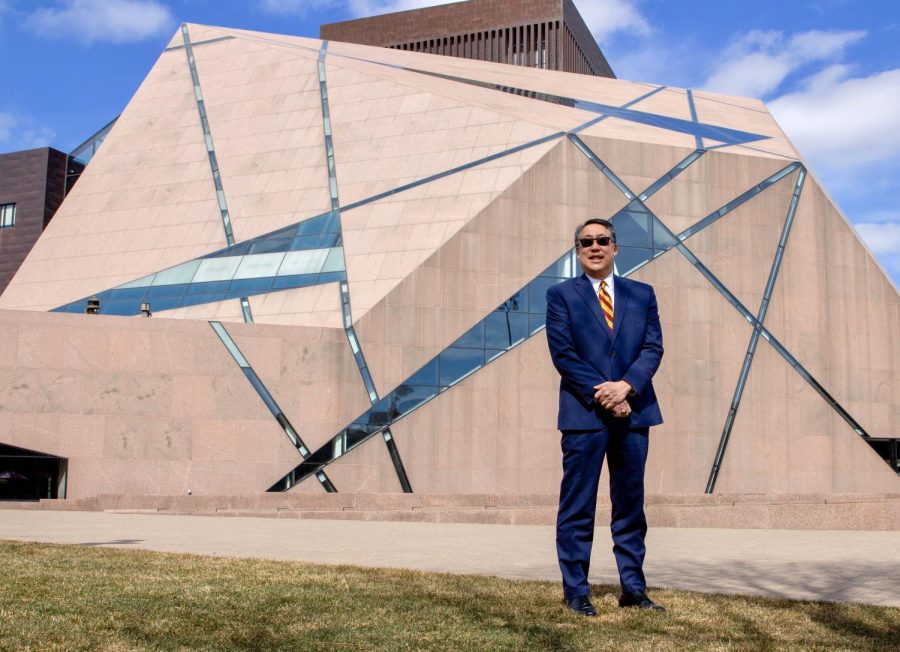Following the election of four new individuals to the University of Minnesota’s Board of Regents earlier this month, the outgoing regents reflected on their time on the board in interviews with the Minnesota Daily.
Former regents Tom Anderson and Rick Beeson did not run for reelection this year and Randy Simonson withdrew from the race in January. Former regent Michael Hsu was not reelected. These regents, all of whom served terms of at least six years, reflected on their successes and challenges while on the board.
The process of transitioning out of their regent roles began almost immediately, Hsu said. Soon after the results of the election were announced, the former regents no longer had access to the internal communications of the board office, he said.
Several of the former board members characterized the responsibilities of the unpaid role as time-consuming. Some also expressed how strange it is to no longer have to balance the needs of the University with their personal and professional lives.
“This job has been consuming for 12 years and thinking about and worrying about the University every day — not quite 24/7, but almost. It’s a big change,” Beeson said. “I’ll adapt to it because I have to but it’s gonna be a big change for me.”
While on the board, Hsu regularly suggested the University make standardized test scores optional for admissions and for tuition to be lowered.
Hsu said the “political” nature of the board was surprising to him after being elected in 2015.
“I figured that you find a problem, you get some data on the problem, you do some analysis, you come up with solutions and then you implement the solutions. That’s not how the Board of Regents works, that’s not how the University works. It’s very political. There’s resistance to change,” Hsu said. “It was a very foreign environment to me from that perspective, because there wasn’t really this drive or this desire to be more efficient. It was more of a desire to keep the status quo going.”
Hsu said he was proud of the actions the University took during the onset of the COVID-19 pandemic last year, particularly the decision to hold tuition flat for the 2020-21 academic year and to provide refunds for students’ housing and dining expenses.
Hsu pointed toward increased transparency as an area he would like to see the University and the board continue to improve in, while Simonson said communication among board members could be improved.
“It’s a board of 12, not just one or two. So several of us, we’ve mentioned this at times, would get information at the last minute, then have to make a decision. And that information was out there prior to that,” Simonson said.
While on the board, Anderson said a main focus for him was expanding the University’s M Health Fairview healthcare system. The board voted in 2018 to merge M Health and Fairview. When looking back at past decisions the board voted on, Anderson said he did not regret any of the votes he made.
“On every vote at a different place in time, you might make a different vote. Sometimes we get a little bit more knowledgeable or enlightened on a subject,” Anderson said.
Beeson, who spent much of his 12 years on the board prioritizing the University’s finances and business ventures, said he regretted some of the votes he made while on the board, though he declined to specify which votes.
“[There are] things I’ve said that I could take back, but I suppose those are things just by human nature that you sort of think back on,” Beeson said. “From my end, I did everything that I could, as well as I could, but it wasn’t perfect. I’ll let others judge what my impact was but it was a great honor to serve.”



















